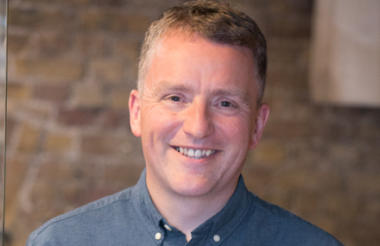Well-run organisations face increased financial pressures, the government needs to “rethink” its relathionship with the sector, and charities need to tell better stories, the incoming chief executive of NCVO said last night.
Karl Wilding, who is currently director of policy and volunteering at the infrastructure body and will take up the new role in mid-September, was speaking at the launch of the latest NCVO Almanac, which is the umbrella body's annual review of the sector’s finances.
He warned that the economic environment is really challenging and this means that even those charities doing the right things face difficulty.
“It’s not just poorly run organisations that are struggling,” he said. “We’re now seeing good organisations go under.”
He said that Brexit, low consumer confidence and a difficult commissioning landscape present problems for charities, and also warned of an “increasing scepticism about philanthropy” that could affect funding in the future.
Wilding added that local authority funding squeezes are an ongoing issue.
While this is not a new problem, “the red light is blinking more loudly,” he said, making it increasingly hard for charities.
He highlighted the case of Northamptonshire County Council, which has asked volunteers to raise £30,000 to buy a library building if they want to run it. He said this was an example of the state “actively working against” community activists and volunteers.
'Certainty and action'
He called for certainty and action from the government to help charities plan for Brexit.
“The CBI is fond of saying that business needs certainty,” he said. “Well business is not the only sector that needs certainty. Charities need certainty as well. They need some progress and a sense of action.”
He said it is frustrating that the sector is still waiting for consultations on things like the social care green paper and shared prosperity fund, which will have big impacts on how charities are run and funded.
The Shared Prosperity Fund is intended to replace the European Structural Fund, and Wilding said he was “incredibly frustrated” that there had still not been a consultation on what is an important source of funding.
He also said he was concerned about indications that the fund would be managed by Local Enterprise Partnerships, which don’t all have a great track record of working with charities.
Step change needed
The government needs to rethink how it engages with the charity sector, stop dishing out random pots of money and think strategically about how encourage giving, Wilding said.
As it stands, he argued, the government’s civil society strategy and the Labour Party’s version were “just aspirations” and that there needs be “much bigger thinking”.
He criticised the government’s recent practice of giving one-off handouts to individual charities during budget speeches, such as “dishing out proceeds the tampon tax”.
Wilding called for the government to really think about “how it frames its relationship with charities to encourage the giving of money and time”.
He said part of this was about a “fundamental rethink of the tax system for charities”.
An independent charity tax commission, convened by NCVO, is due to report its findings in July.
Wilding describe the government’s civil society strategy, revealed last year, as an “aspiration”.
“If we want to do something about that then we need a step change in how government thinks about our sector,” he said.
Tell a better story
Wilding also challenged the sector to step up and find better ways of explaining the difference it makes, or risk being misunderstood.
He highlighted the launch of apps using Charity Commission data to present a picture of charities being more inefficient than they are.
“We need to be thinking more than ever about what is our story,” he said, which means explaining “as a sector how we make a difference. That is a real challenge for NCVO and others; how do we use data to tell stories?”
He added: “If we don’t find a better way then someone else is going to do it for us.” This includes looking at the accounting framework for charities, he said.
|
Related articles












